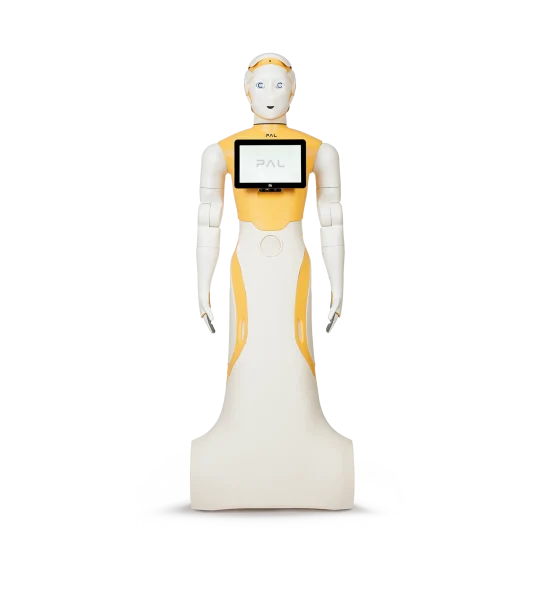Our Role
PAL Robotics contributes to the SPRING project by designing and manufacturing prototypes of high-performance gerontechnological ARI robots. Additionally, integration of the software developed by partners to enable the robots to participate in various user cases in hospital settings, such as welcoming newcomers, assisting with check-in/out processes, providing information, guiding appointments, and offering entertainment.
Key responsibilities
- Designing and manufacturing prototypes of high-performance gerontechnological ARI robots.
- Integrating software developed by partners to enhance the robots’ capabilities for multi-person interactions and extensive dialogue.
- Collaborating in deploying the robots in hospital environments to fulfill various user cases and improve social interaction and user acceptance.









